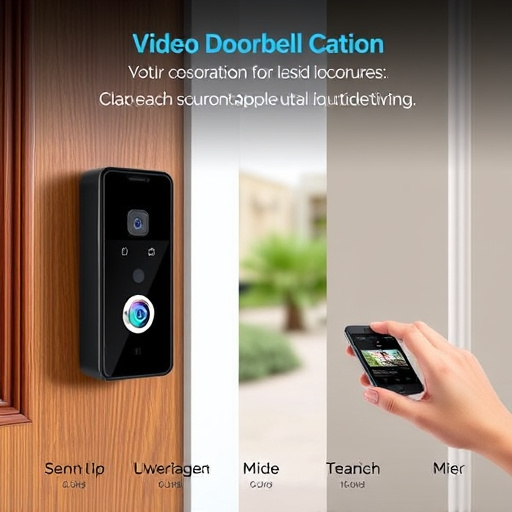College students are vulnerable to rental scams due to their limited experience and financial status. To avoid fraud, exercise caution during the housing search by cross-referencing details, verifying landlords, and inspecting properties in person. Key tips include reading lease terms thoroughly, understanding local tenant rights, and never sending money without a signed agreement. Recognize red flags like immediate payment pressure or too-good-to-be-true deals to navigate safe college renting. Utilize university resources, online forums, and peer reviews for real-time insights into potential scams.
“Navigating the complex world of off-campus housing can be a challenging task for college students, especially with the prevalence of rental scams. This comprehensive guide aims to empower students with knowledge and awareness, helping them avoid becoming victims of fraudulent practices. We’ll delve into the most common scams targeting students, highlighting red flags and providing essential tips for secure renting. Understanding your rights and utilizing available resources are key to safeguarding your housing experience.”
- Understanding Common Rental Scams Targeting College Students
- Red Flags: What to Look Out For When Renting Off-Campus
- Protecting Your Rights: Tenants' Legal Standpoints Against Scammers
- Smart Student Strategies for Secure and Safe Housing
- Resources and Tools to Combat Rental Fraud in the College Landscape
Understanding Common Rental Scams Targeting College Students

College students are often targeted by rental scams due to their limited experience and financial vulnerability. One common tactic is the sudden availability of off-campus housing at astonishingly low prices, especially close to campus. Scammers may use compelling descriptions or even fake photos to lure unsuspecting students. Another scheme involves fraudulent online listings, where con artists mimic legitimate properties and collect security deposits from naive renters before disappearing.
To avoid rental fraud, students should exercise caution when searching for housing. Cross-referencing listing details with trusted sources, verifying the landlord’s information, and inspecting the property in person (if possible) are essential precautions. Student renting tips include checking lease terms thoroughly, understanding local tenant rights, and never sending money without a signed agreement. Safe college renting involves being aware of red flags like pressure to pay immediately, lack of physical address for the landlord, or unusually good deals that seem too good to be true.
Red Flags: What to Look Out For When Renting Off-Campus

When searching for off-campus housing as a college student, it’s crucial to be vigilant and aware of potential rental scams. There are several red flags to look out for to ensure a safe and legitimate renting experience. Be suspicious of overly cheap listings, as these may be fraudulent or substandard properties. Unprofessional landlords often rush the process, asking for immediate decisions without sufficient time to consider the arrangement.
Another common scam tactic is the pressure to pay in full upfront without signing a formal lease. Legitimate landlords typically require a security deposit and first month’s rent, but never ask for all funds beforehand. Be wary of listing descriptions that lack detail or include obvious errors, as these could be indicative of a fraudulent ad designed to lure unsuspecting students. Always verify the landlord’s identity and address through cross-referencing multiple sources.
Protecting Your Rights: Tenants' Legal Standpoints Against Scammers

When it comes to protecting your rights as a tenant, understanding your legal standpoints is crucial in avoiding rental fraud. As a college student looking for student housing, be aware that federal laws exist to safeguard your interests. The Fair Housing Act (FHA), for instance, prohibits discrimination in the rental process based on factors like race, religion, national origin, gender, and disability. It also ensures your right to live free from unsafe or hazardous conditions.
If a landlord attempts to violate these rules, you have legal recourse. Know your rights to safe college renting and don’t be afraid to ask for documentation or report suspicious activities. Student rental tips often include verifying the landlord’s identity, reading the lease carefully, and seeking advice from college resources or legal aid organizations specializing in tenant rights, especially when dealing with what appears to be student housing scams.
Smart Student Strategies for Secure and Safe Housing

Staying safe and secure while searching for college housing is crucial to avoid falling victim to rental scams targeted at students. One effective strategy is to research properties thoroughly before committing. Check online reviews, reach out to current residents (if possible), and verify the landlord’s details through official channels. Be wary of deals that seem too good to be true; legitimate rentals won’t require upfront payments or rush you into signing contracts without ample time for verification.
Another student rental tip is to prioritize transparency and communication. Always ask for clear terms, including lease duration, rent amount, and any additional fees. Ensure the landlord provides a written agreement detailing all conditions. Stay alert for any signs of pressure tactics or ambiguous language. Remember, it’s okay to walk away if something feels off; your safety and peace of mind are paramount when securing college housing.
Resources and Tools to Combat Rental Fraud in the College Landscape

Staying safe while searching for off-campus housing is a crucial aspect of the college experience. With countless rental scams circulating in the college landscape, students must be vigilant and equipped with knowledge to avoid falling victim to fraudulent schemes. One effective strategy is to leverage various resources and tools designed to combat rental fraud specifically targeting students.
Many universities offer dedicated departments or websites that provide student rental tips and insights on recognizing scams. These platforms often include databases of verified housing listings, helping students differentiate legitimate offers from potential student housing scams. Additionally, online forums and peer-to-peer review sites allow current students to share their experiences and warnings, serving as a powerful early warning system for newcomers. By staying informed and utilizing these tools, college students can navigate the rental process with greater confidence, ensuring they secure safe and honest accommodations.














